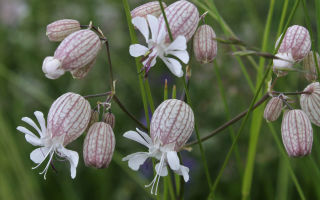Content
The medicinal properties of the resin deserve careful consideration. A useful herb is often used in folk medicine for inflammation, nervous disorders and digestive diseases.
What it looks like and where it grows
Silene vulgaris (Silene vulgaris) is a perennial plant from the Clove family. It has a short, weak root and a bare, erect stem, the leaves of the grass are bluish and lanceolate, elongated, up to 10 cm in length. The upper plates are sedentary, the lower ones taper into a short petiole.
From June to September, it produces flowers with a swollen calyx and white star-shaped petals on short pedicels. Begins fruiting in July in spherical capsules with seeds.
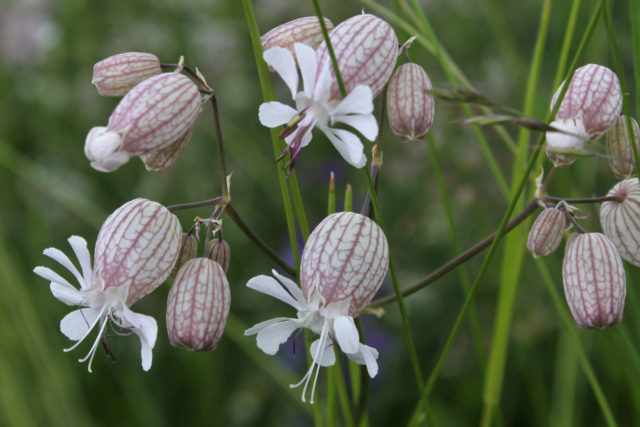
Smolovka is widespread in Europe and North America, it is found in the Caucasus, the Himalayas, Japan, Central Asia and even in northern Africa. On the territory of Russia, you can see grass in all regions, except for deserts and arctic regions.
For life, the resin chooses bright and well-moisturized places. Occurs on forest edges, glades and meadows, along roadsides and on wastelands.
Chemical composition
Ordinary resin is valued by folk medicine for its rich chemical composition. In the underground and aboveground parts of the plant there are:
- tannins and flavonoids;
- sinapic acid;
- saponins;
- saponarin;
- organic acids;
- resins and coumarin;
- homophyentin;
- ferulic acid;
- vitamin C;
- alkaloids;
- isovitexinorientin.
Some substances in the plant are classified as toxic. For this reason, resin requires careful use in small dosages.
How and how does Smolyanka grass help
The herb resin has strengthening properties and improves well-being for many ailments. Namely:
- has a calming effect on the nervous system and helps with depression;
- cleanses the blood and improves its composition;
- serves as a mild pain reliever;
- copes with inflammation and fights bacterial processes;
- strengthens the respiratory system and is beneficial for tuberculosis;
- promotes expectoration with bronchitis;
- has a beneficial effect on bleeding gums;
- relieves toothache and accelerates the treatment of stomatitis and gingivitis.
Infusions and decoctions of the plant are often used externally for rubbing and compresses. The resin soothes irritations on the skin, prevents infection of cuts and accelerates the healing of wounds and burns.
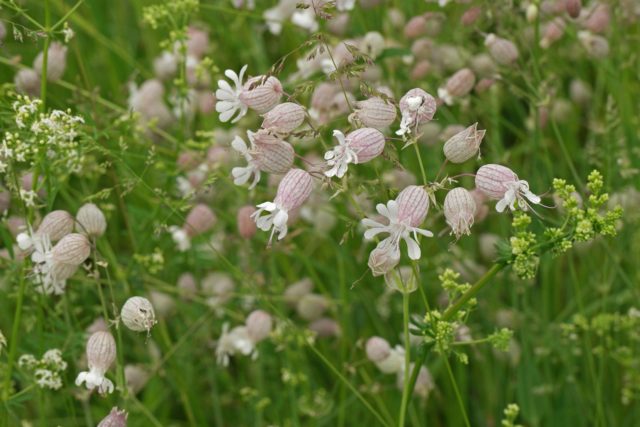
Medicinal properties of common resin
Traditional medicine most often uses common resin - this type of plant is most widespread. Herbal decoctions and infusions:
- remove edema and help to get rid of excess weight;
- have sedative properties and help to cope with anxiety and depression;
- have an antiseptic effect when applied externally;
- improve the functioning of the stomach and intestines in chronic gastritis;
- help to cope with diarrhea and dysentery;
- relieve heartburn;
- make up for the lack of vitamins.
It is useful to use means based on ordinary resin for urogenital inflammations in men and women, for infectious processes of the reproductive sphere. Broths are not only taken internally, but also added to medicinal baths.
The medicinal properties of white resin
White resin is not inferior to ordinary one in terms of medicinal value. Plant infusions are used:
- with insomnia and migraines;
- with toothache;
- with epilepsy and seizures;
- with uterine and hemorrhoidal bleeding;
- with intestinal tumors.
Products on leaves and stems of white resin improve bile secretion. Taking the plant is useful for cholecystitis and inflammatory liver diseases.
Preparation and application methods
Traditional medicine offers several ways to process a medicinal plant. On the basis of useful resin, you can prepare alcohol and water products with strong healing properties.
Tincture
With regular migraines, insomnia and frequent stress, alcohol tincture of resin has a good effect. They make it according to this recipe:
- fresh or dry grass is crushed in an amount of 25 g;
- put the raw material in a glass container and fill it with vodka or alcohol in a volume of 250 ml;
- the vessel is tightly sealed and removed for two weeks in a cold, dark place;
- from time to time, remove the container to shake well.
When ready, the tincture is filtered. It must be consumed 15 ml three times a day. The course of treatment should take only a week, then take a break for 5-6 days and, if necessary, repeat the therapy.
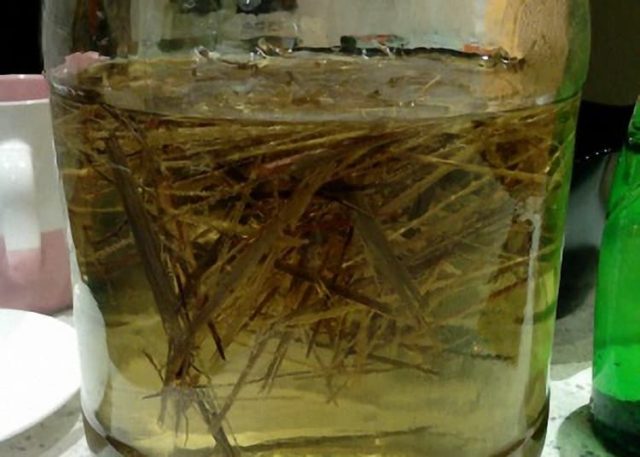
Infusion
With poor digestion and a tendency to diarrhea, an aqueous infusion of resin has a beneficial effect. A home remedy is prepared like this:
- 15 g of dry leaves and stems are crushed with a mortar and placed in a glass container;
- pour raw materials 180 ml of boiling water;
- stir and cover;
- leave for half an hour, then filter.
It is necessary to use the infusion throughout the day every three hours, 20 ml.
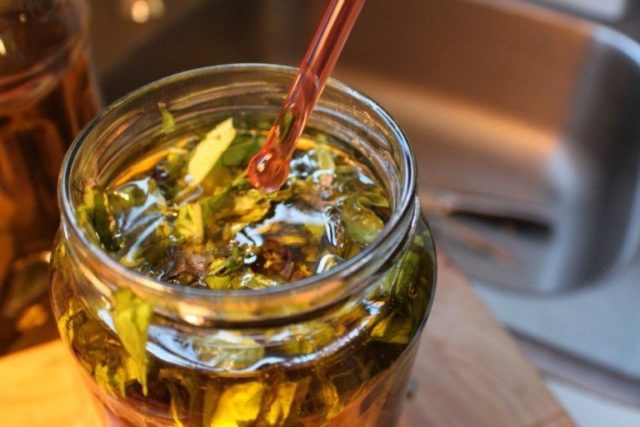
Decoction
A decoction of resin has valuable medicinal properties. It is prepared according to the following algorithm:
- the flowers of the plant are crushed in a volume of six large spoons;
- 1 liter of liquid is poured into raw materials;
- boil over low heat after boiling for four minutes;
- cool under the lid and filter.
It is recommended to take a decoction for coughs and bronchitis, half a glass up to three times a day. You need to drink the product warm.
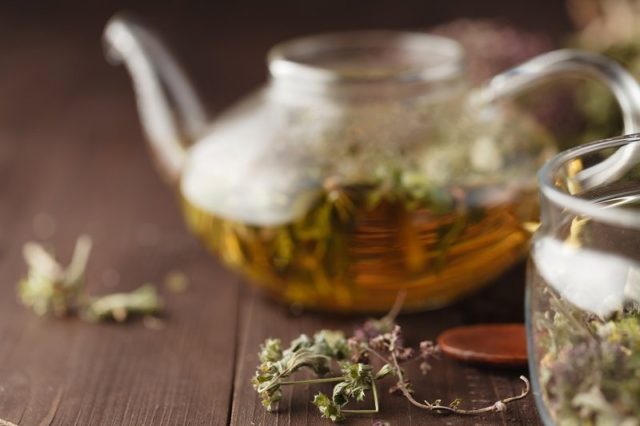
The use of the herb smolyanka in folk medicine
The valuable properties of resin are used in many chronic diseases and acute disorders. Traditional medicine offers several safe recipes with dosages.
For insomnia
For poor sleep and nervous disorders, an infusion of common sap is beneficial. It is prepared according to the following algorithm:
- 20 g of plant materials are poured into 200 ml of hot liquid;
- mix and leave under the lid for 15 minutes;
- pass the warm infusion through cheesecloth.
You need to take the product in the volume of a glass once a day, shortly before bedtime. They consume the infusion on an empty stomach, in which case the nutrients are absorbed faster.
With diarrhea
The resin infusion prepared according to this recipe has good fixing properties:
- 15 g of dry grass is poured with a glass of boiling water;
- cover with a lid and leave for half an hour;
- cool and filter.
You need to take the drug in 100 ml on an empty stomach three times a day. The beneficial effect comes almost immediately, but for the final normalization of the bowel function, it is worth using the remedy for a few more days.
For skin ailments
The anti-inflammatory properties of common resin are good for skin irritations, wounds and cuts. For treatment, such a remedy is prepared:
- three large tablespoons of dried raw materials pour 250 ml of boiling water;
- insist in a closed container for 40 minutes;
- cooled to a warm state and filtered.
In the infusion, it is necessary to moisten a clean bandage or gauze and apply it with a compress for half an hour. It is recommended to repeat the procedure up to five times a day.
With gum disease
Common resin eliminates bleeding gums, relieves inflammation and soothes pain. The plant is applied as follows:
- 300 g of dry raw materials are poured into 1 liter of fresh boiling water;
- cover the container with a lid and keep the product for half an hour;
- cooled to a warm state and filtered.
The resulting infusion is used for mouthwash up to four times a day.
With heartburn
Plain or white resin soothes the stomach in case of heartburn and reduces the production of hydrochloric acid. The remedy is prepared as follows:
- 20 g of dry raw materials are poured with water;
- after boiling, simmer over low heat for ten minutes;
- remove the product from the stove and leave under the lid for 40 minutes.
The filtered infusion is taken half a glass on an empty stomach up to three times a day.
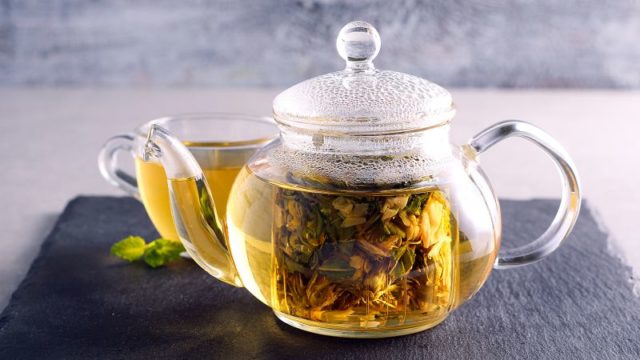
For apathy and chronic fatigue
Medicinal resin has a beneficial effect on the nervous system, improves tone and restores vigor. With a breakdown and emotional disorders, the following infusion is prepared:
- 30 g of dried herbs are poured into 500 ml of hot water;
- cover the container with a lid and leave to cool;
- the finished product is filtered from the sediment.
You need to drink an infusion of 50 ml on an empty stomach three times a day.
With migraines
The pain relieving properties of common resin are beneficial for recurrent headaches. A simple remedy is prepared for treatment:
- two large tablespoons of dry leaves are crushed and poured into a glass of hot liquid;
- leave closed for half an hour;
- filtered from the sediment through cheesecloth.
Ready infusion in a warm form is drunk at one time. The migraine should subside soon after using the remedy.
With depression
The beneficial properties of common resin have a beneficial effect on hormones, improve mood and help to eliminate depression. Traditional medicine recommends using alcohol tincture, but they do it like this:
- 50 g of dry stems and foliage are poured with 500 ml of vodka;
- close the vessel and put it in a dark place for a week;
- when ready, pass the remedy through gauze.
It is necessary to take a tincture of 5 ml four times a day. In total, treatment continues for up to ten days in a row.
With bronchitis
Common resin has expectorant properties and fights bacterial processes in bronchitis. For treatment, prepare the following decoction:
- measure out three large spoons of dry flowers of the plant;
- pour 500 ml of water;
- simmer over low heat after boiling for four minutes;
- cool the broth under the lid and filter.
It is necessary to take the remedy for bronchitis in half a glass three times a day.
With cystitis
The diuretic properties of common resin help to cope with inflammation in cystitis and relieve pain. The drug is done as follows:
- 50 g of dried flowers are ground with a mortar;
- pour 500 ml of boiling water;
- insist in a thermos or under a lid for two hours;
- filter.
You need to drink a decoction of 100 ml three times a day.
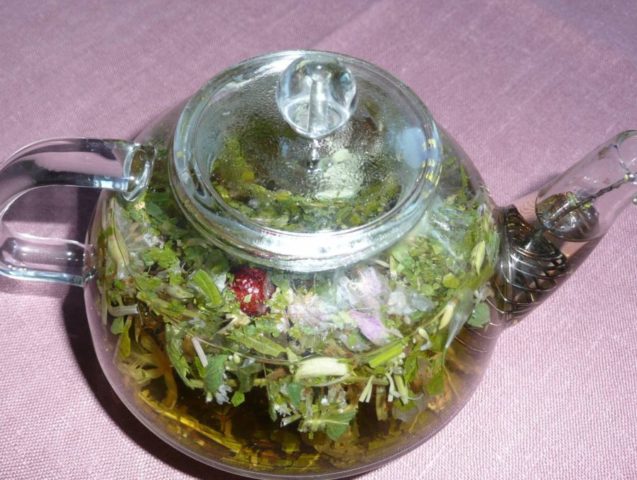
Contraindications
The numerous beneficial properties of common resin are accompanied by some contraindications. It is not recommended to use plant-based products:
- with individual intolerance;
- with exacerbation of pancreatitis and peptic ulcer;
- with a tendency to constipation;
- with acute intestinal colitis;
- with reduced acidity of the stomach.
Broths and infusions of resin should not be consumed during pregnancy and lactation - the herb can harm the baby. Children are offered a medicinal plant only upon reaching the age of ten and with the permission of a doctor.
When used carefully, resin rarely causes side effects. But against the background of allergies or overdose, the following symptoms may develop:
- nausea and vomiting;
- headaches;
- weakness;
- dizziness;
- diarrhea.
If such signs appear, the treatment with resin should be stopped immediately.
Collection and procurement
For medicinal purposes, it is customary to collect the aerial parts of the resin - leaves, flowers and stems. Plant raw materials are harvested from June to August. The collection is carried out on a warm and dry day, preferably in the morning, the greens are cut off with a sharply sharpened knife at a distance of several centimeters from the ground.
The harvested parts of the plant are washed from dust and dirt and laid out in an even layer on a baking sheet. You need to dry the resin in the air under a canopy or at home, in a warm and ventilated room. If desired, it is allowed to use an oven or dryer at a temperature not exceeding 50 ° C. The finished raw materials are laid out in paper bags or linen bags and put into a dark cabinet.
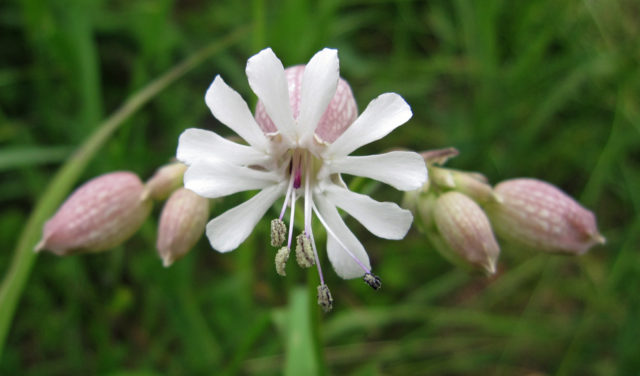
Conclusion
The healing properties of the resin are used by traditional medicine for inflammatory and digestive ailments. The plant has a strengthening effect and helps with diarrhea, as well as relieves heartburn and improves the condition of diseased gums.

